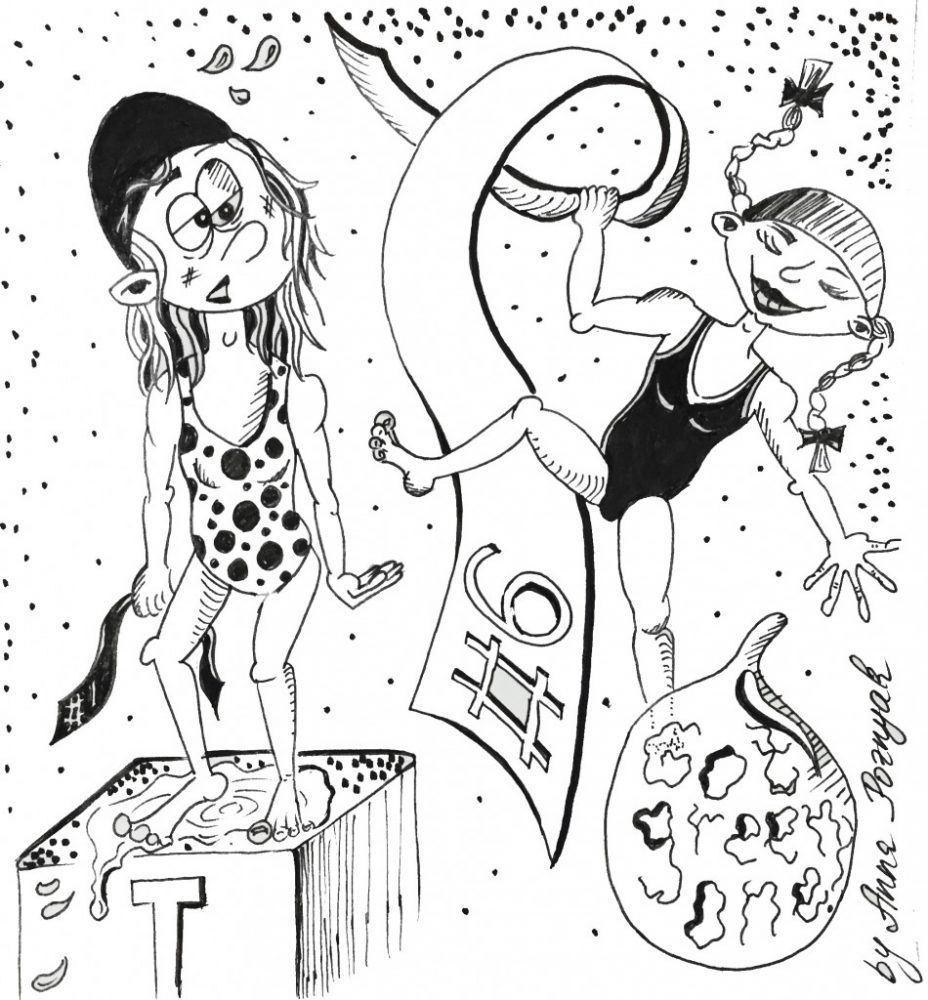About a decade ago, I swam competitively. It was serious stuff. We 6-year-olds had a lot to remember—which stroke to swim, when to swim, how to swim—but most importantly, we had to swim faster than everyone else. I wasn’t halfbad, either. Aside from a memorable meet when I was disqualified for swimming backstroke in a freestyle heat, I often made my coach proud. I cultivated quite the collection of ribbons, even a few for first and second place. But winning, however, was not my ultimate goal.
Instead, I wanted a ribbon of every color. Blue, red, orange, white, green, pink-—I remember one day being furious after receiving a blue ribbon. I already had a few of those, and what I really needed was a green one. I should have finished in sixth place.
I didn’t understand the competitive aspect of the team–I swam fast so I could exit the chilly pool, not so I could win. I worked to improve my times, but I completely ignored the competition to focus on my own personal goal.
Though I have certainly evolved from my preadolescent self, I retain that spirit.
As Alfie Kohn, author of No Contest and Punished by Rewards wrote: “Competition is to self-esteem as sugar is to teeth.” Kohn stipulates that when children become accustomed to winning, they run the risk of equating their self-worth with success. This can lead to low self-esteem. Though some experts have disputed Kohn’s conclusions, they explain the negative consequences that result from a fixation on first place.
Obviously, competition is unavoidable. If you want to be a surgeon, you’re going to have to compete against thousands of others with the same goal. Television shows have turned everything from cooking to fashion design to singing into highly entertaining competitions. And the fact of the matter is that aspiring chefs, designers and singers must be better than their competitors to be successful.
But there is a difference between wanting to be the best chef and wanting to be a fantastic chef. High goals are one thing; negative ones are another. For someone focused on winning, losing can be hard to stomach. In my experience, it is far more fulfilling to enjoy the work, game or swim meet than to constantly compare myself to others. The few times when I have actively competed against an individual solely to win, I have performed worse.
Last summer, I decided to be more competitive in cross country. It wasn’t very fun, and I didn’t run any faster. Many of my times were slower when I set out to run against my teammates (and my competitors) than when I was running with them. I didn’t like running as much as I used to, and my performance suffered.
My experience is fairly typical. John Tauer, a psychology professor at the University of St. Thomas, studied the effects of competition on free-throw accuracy. He grouped children in three ways: two children competing against each other, two players working for a high combined score, and two children cooperating to land more free throws than another team.
The combination of cooperation and competition resulted in the highest scores overall. His findings show that some competition is healthy, especially when you aren’t alone. I tend to perform best—whether in school or in life—when I am surrounded by highly motivated people. But there is a distinction between competing to win and competing to excel. Whether in school, sports or life, striving to be No.1 diminishes the meaning of my effort. I prefer to compete on a more personal level: I try to compare myself only to my past performances.
While winning can be gratifying, it certainly isn’t everything. For some people, extreme competition may be conducive to excellence, and that’s perfectly OK. For me, however, it just leads to stress. My 6-year-old self didn’t see the value in winning. Sure, I may have won a blue ribbon, but that doesn’t mean much. I was far more satisfied to finally get the sixth-place ribbon that rounded off my rainbow collection than when I just added to my stack of boring blue ones.









Marc • Mar 16, 2022 at 4:07 pm
I don’t think Michael Jordan would approve of this article.